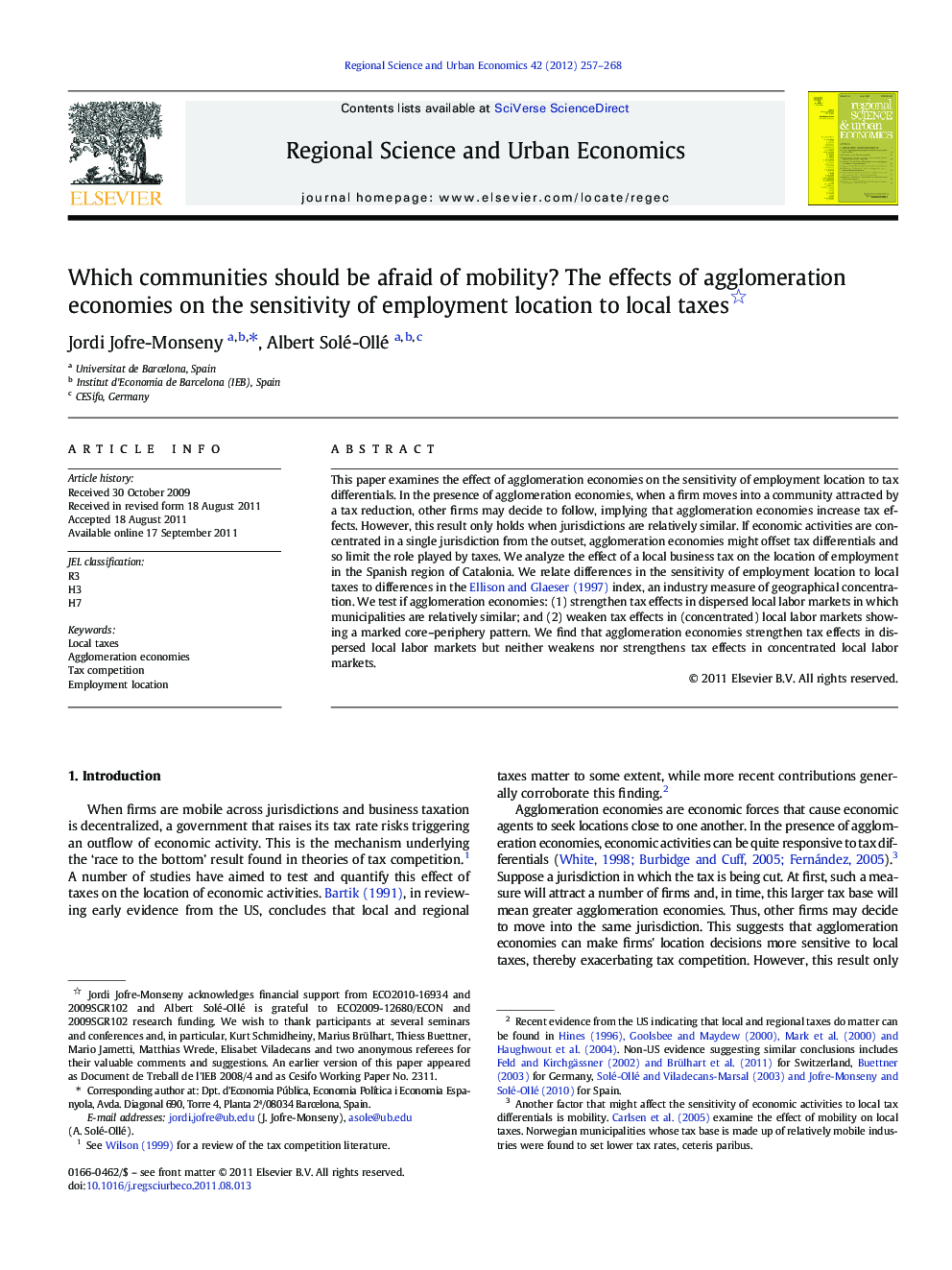| Article ID | Journal | Published Year | Pages | File Type |
|---|---|---|---|---|
| 981119 | Regional Science and Urban Economics | 2012 | 12 Pages |
This paper examines the effect of agglomeration economies on the sensitivity of employment location to tax differentials. In the presence of agglomeration economies, when a firm moves into a community attracted by a tax reduction, other firms may decide to follow, implying that agglomeration economies increase tax effects. However, this result only holds when jurisdictions are relatively similar. If economic activities are concentrated in a single jurisdiction from the outset, agglomeration economies might offset tax differentials and so limit the role played by taxes. We analyze the effect of a local business tax on the location of employment in the Spanish region of Catalonia. We relate differences in the sensitivity of employment location to local taxes to differences in the Ellison and Glaeser (1997) index, an industry measure of geographical concentration. We test if agglomeration economies: (1) strengthen tax effects in dispersed local labor markets in which municipalities are relatively similar; and (2) weaken tax effects in (concentrated) local labor markets showing a marked core–periphery pattern. We find that agglomeration economies strengthen tax effects in dispersed local labor markets but neither weakens nor strengthens tax effects in concentrated local labor markets.
